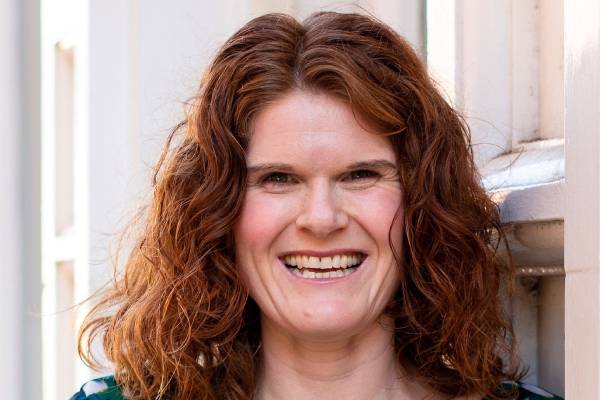Authored by Certified Business Psychologist Laura Howard. Certified Business Psychologist, Laura Howard, reflects on the webinar she recently delivered to ABP members. Below she outlines the main findings of her published research uncovering systematic barriers women face when being authentic as leaders. Importantly, she gives…

The sinister art of coercive control is driven largely by narcissists who exploit it, human vulnerabilities of those who are controlled by it, and is fuelled by an explosion of information, disinformation and an increasing use of tools in deception, argued Steve Hassan at the ABP’s October meeting held online. Unfortunately, authoritarian cults continue to flourish everywhere. The session was presented through the powerful lens of Steve’s experience as a member of the Moonies and how he managed to escape the cult and launch his career as a Coach, Author and licensed mental health counsellor. Hassan is completing his PhD currently at Fielding Graduate University.
The meeting considered the following agenda:
- What is Coercive Control?
- What are the Dark Arts?
- How would you know if you were under Authoritarian Control?
- What can you do about it – the Antidote?
- Real Life Example – The Moonies
- Donald Trump as an Authoritarian Coercive Leader
- Consequences for Individuals Coercively Controlled and Exit Strategies
- What can we Learn from Donald Trump?
Although coercive control exists the world over, it is worth mentioning that it has obtained a particular focus internationally as a result of the 2016 Presidential election of Donald Trump. The forthcoming Presidential election is believed to be absolutely critical to the survival of democracy in the United States. In the UK coercive control by a man over a woman has been outlawed through Section 76 of the 2015 Serious Crime Act but no such law exists in the US yet.Hassan’s doctoral research connects the dots with the legal systems and understanding undue influence with the hope of providing a tool to help identify it correctly.
Steve Hassan is a member of a forensic think tank, The Program in Psychiatry and the Law, established by Harvard Medical School psychiatrists Thomas Gutheil and Harold Bursztajn and writer Archie Brodsky back in the 1980s. Hassan has been mentored by this prestigious group who encouraged Hassan to do doctoral research and become an expert witness. Professor Michael Commons heads the research effort for the Program and encouraged Hassan to do quantitative research on his BITE model as the law pays attention to scientific work.
The earliest influential work was undertaken by Edgar Schein (1961) on brainwashing during the Chinese Cultural Revolution. Robert Lifton on thought reform/theory of Totalismwhich considered eight criteria and who brought together relevant research as a construct for further research. It remained however as an unresolved scientific issue.
Army psychologist Margaret Singer likewise studied Chinese brainwashing and later applied her work to cults (Cults in our Midst, 1995). Scheinlater went into the world of business and is now considered a living legend in the Organization and Development sphere.
Hassan drew upon the work of psychologist Leon Festinger (When Prophecies Fail, 1957). He likened the work to a spaceship landing and the occupants exiting into an unfamiliar environment, with their attendant fear of the unknown. The main conclusion of hiswork was that people do not likedissonance between their thoughts, feelings and behaviours and leaned towards consistency.
Steven’s work has encapsulated elements of all four of these models to develop his theories of coercive control utilizingthe concept of the BITE model of Authoritarian Control.
Drawing on the work of all four, Steven created the BITE model, which is comprised of 4 overlapping components:
- Behaviour control
- Information control
- Thought control
- Emotion control
Above all, however, an organisation should respect its core values which encapsulates all of the above.An example of a spectacular failure was Enron, which boasted that “Ruthlessness, Callousness and Arrogance don’t belong here”. The trouble was that they did, and the organisation crashed in spectacular fashion. Dennis Tourish of Aberdeen University referred to charismatic leadership and the culture of cultism which led to the promotion of conformity and the elimination of dissent.
80% of abuses can be traced back to power, money or sex or a combination. However, there is no unique combination of elements which contributes to this. A study of the issue is most usefully represented on an “Influence” continuum which can move between constructive and destructive. In China, the pressure is to become a “clone” of the group by being conscious of what the authorities want. This behaviour ratchets up to an expectation by leaders of obedience and a doctrine orientated around hate for outliers.
A clever tactic is to appear to be open to change but underlying is the use of power structures to manipulate–deception is key. Most groups play on phobias: members are made to feel that they have a free choice to leave, but “terrible things” can happen if you do. Groups use “member comfort zones” to reinforce the cloning process, often milking vast sums of money. while at the same time concealing the dark side of the leadership, which can include sadism, abuse and theft for personal gain.
An effective technique in engaging individuals is to build them up and then break them down. They ultimately imagine only thoughts about the cult, obliterating images of happiness and external fulfilment.
The analogy with Trump and his followers acting like a cult is compelling. The office of the Presidency brings with it enormous power and resources. But he wishes to always be right, fires anyone who does not act dependent and obedient.
The Influence Continuum and the BITE model helps us understand and analyse how cults and high demand groups operate. There are remarkable similarities, except that in a cult you are subjected to the extremes of being raped “spiritually” and cut off from your family.
How can you recover? Crucially you have to regain control of your own mind. Only the individual can discover their own solutions but recognising the alternatives and choosing the way out. By using a balance of psychoeducational tools and endeavouring to do reality-testing strategies people can tune in to their authentic self. Having a working toolbox for discerning who is trustworthy and what behaviours are problematic, people can reclaim their personal power. For those seeking to help family and friends caught up in cults, including QAnon, the most effective way is to build bridges and ask gentle respectful questions, and without exception people are overcome with relief on leaving.
Trump has achieved an almost “magical” status in the eyes of some true believing Americans. These people believe that doubting him is almost a sin, to the extent that whatever people throw at him, including incontrovertible evidence of tax evasion, it just drips off, like a Teflon surface. Trump has the stereotypical profile of a cult leader – malignant narcisisim – but the Trump phenomenon is more complex than this.
Narcissism exists on a continuum: and if a person iswilling to admit mistakes and learn, they are not on the dark end of that continuum. If there is empathy and willingness to show vulnerabilities, listen to others and learn and improve, then there is a capacity for healthy involvement.
What is the antidote? Like a cellphone pounding with information, the answer is simply to switch it off. Then study models of undue influence like the BITE model. Then seek out critics and former members (fired insiders) and listen to their experiences and perspectives. Last, think back before you got involved and reflect back how you came to believe. Were there lies used to deceive and manipulate you? Conduct a thought experiment about the group: then ask whether you would still have got involved.
Moon was an extreme case, but he managed to hoodwink me and others to believe he was the Messiah. He claimed he would establish a garden of Eden on earth, but this was going to be a theocracy where all other religions would be abolished and all would worship him. A ceremony was held in the US Senate office building where he was crowned the Messiah. He also did huge mass weddings – the largest had over 30,000 couples, most of whom had never met each other, at the same ceremony. The cult had huge number of business entities, including the Washington Times, as well as a gun factory. It was enforced by a strict authoritarian pyramidal structure with the top leaders in rarefied distance from the fringe members
The trial of Keith Raniere, actress Allison Mack, Nancy and Lauren Saltzman as well as Clare Bronfman, heiress to the Seagram empire, demonstrated in court in lurid detail the tactics used in ensnaring and trapping followers in her NXIVM cult. The cult leadership used NLP and set the organisation up as a self-help empowerment group. Raniere and Saltzman and later Mack, wanted forced dependency and obedience. This then led to abuse of power and of manipulation of cult members and ultimately to theirconviction.
Exiting an authoritarian cult is always difficult but millions of people have successfully reclaimed their personal power and autonomy. Steve Hassan continues to write a weekly blog, teaches, does interviews, and is currently developing an online course. He has written four books explaining and outlining his approach that he calls the Strategic Interactive Approach. It involves educating and directing family members, friends, co-workers to have positive constructive interactions with the cult members – avoiding confrontation, saying insulting or demeaning things. Asking good questions in a respectful manner, building rapport and trust, and using other cult mind control examples, while avoiding the group the person is in, opens doors to developing perspective.
Steve Hassan is finishing a doctoral program in Organisational Change and Development at Fielding Graduate University and hopes his research with help to update legal systems to address the public good.
Steve’s main publications are:
- Combating Cult Mind Control (30th Anniversary Edition published 2018)
- Freedom of Mind (Published 2012)
- The Cult of Trump (Published October 2019)
RT
01 October 2020



